After the last show ends and concertgoers leave the Coachella Valley Music and Arts Festival, over a hundred tons of trash are left behind on the grounds.
Many of the people who are hired to undertake the massive cleanup are Purépecha, an indigenous group in Mexico. They have their own language and rich cultural traditions. Many have come to the United States seeking better opportunities. The Purépecha community in Coachella Valley has lived there for close to 50 years.
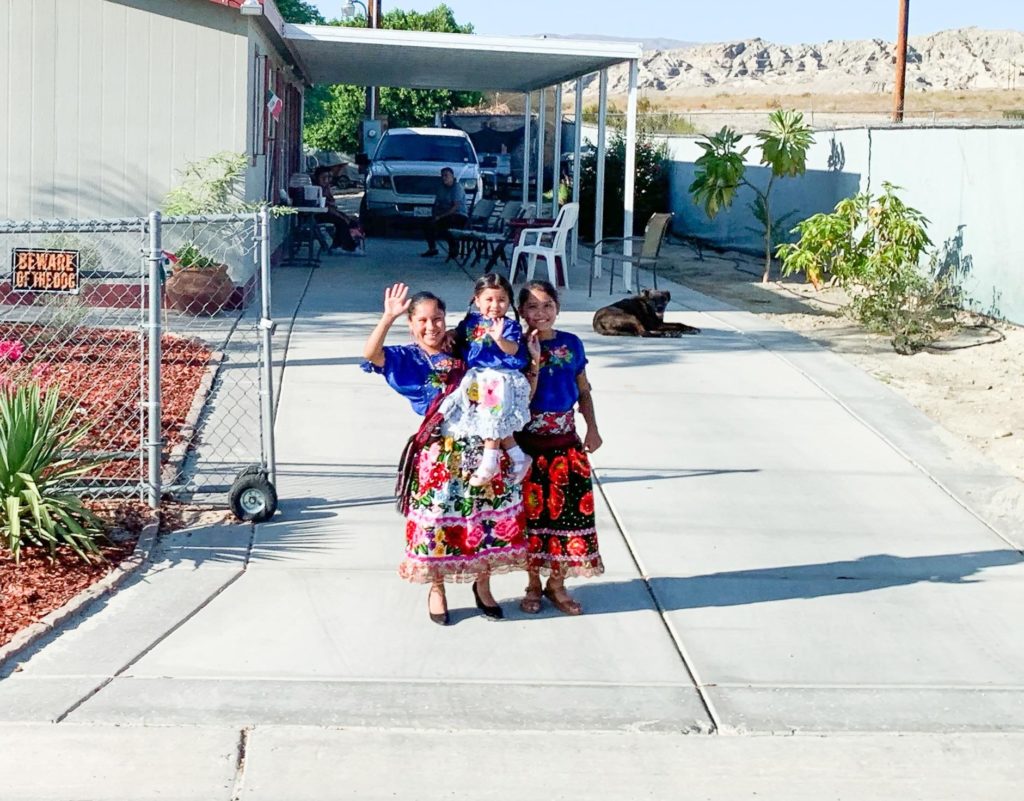
They experience the challenges of severe poverty, as well as discrimination due to their different language and customs.
Four years ago, the Missionaries Guadalupanas of the Holy Spirit, an order of Catholic sisters, was invited to minister to the Purépecha people in the Coachella Valley.
The sisters of this congregation are devoted to serving the poorest, especially indigenous peoples, migrants, and those who are marginalized and excluded.
Sister María Teresa Pacheco and Sister Felicitas Almanza go out to meet, walk with, and help transform the lives of the Purépecha people for the better. “We want to be bearers of life,” Sister María Teresa said.
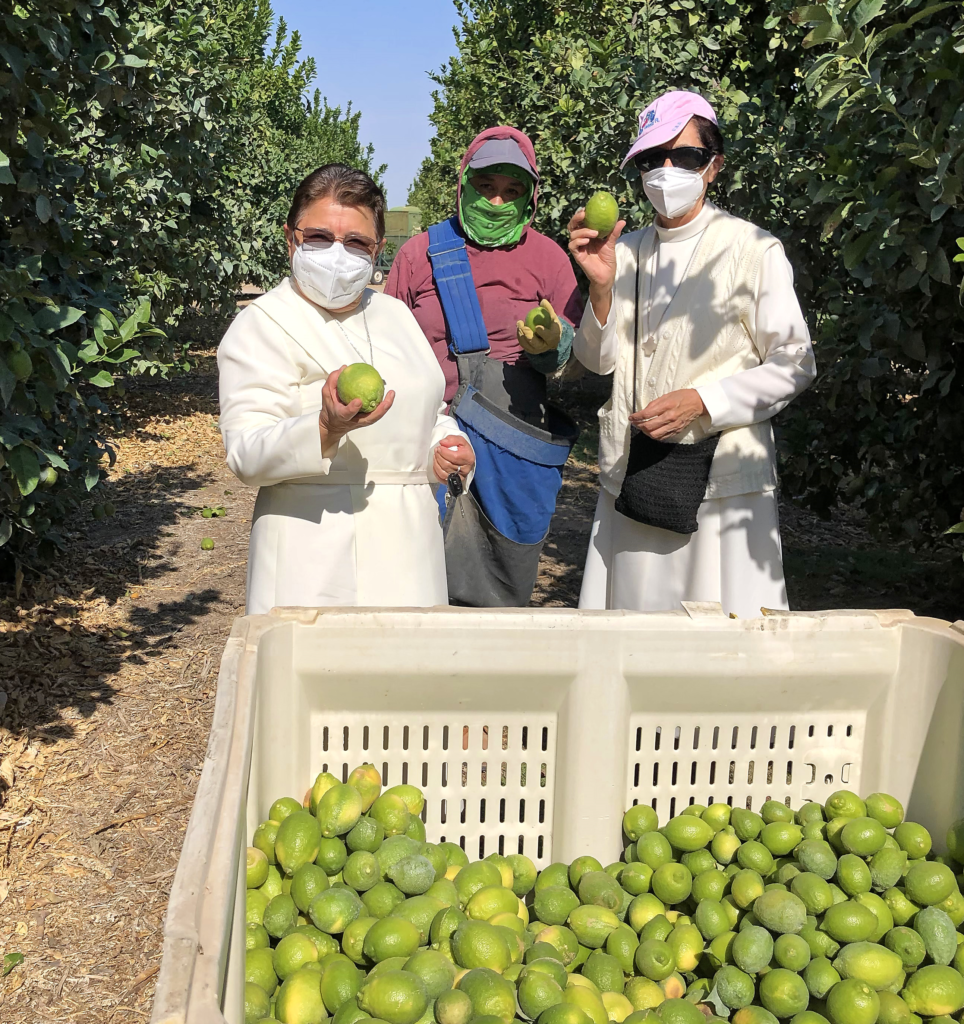
“It is a community that is distinguished by solidarity, and they are very united,” said Sister Felicitas Almanza. “This culture is a great gift, because they express their dances, they express their sense of community, they express their entire culture in this sense of being indigenous.”
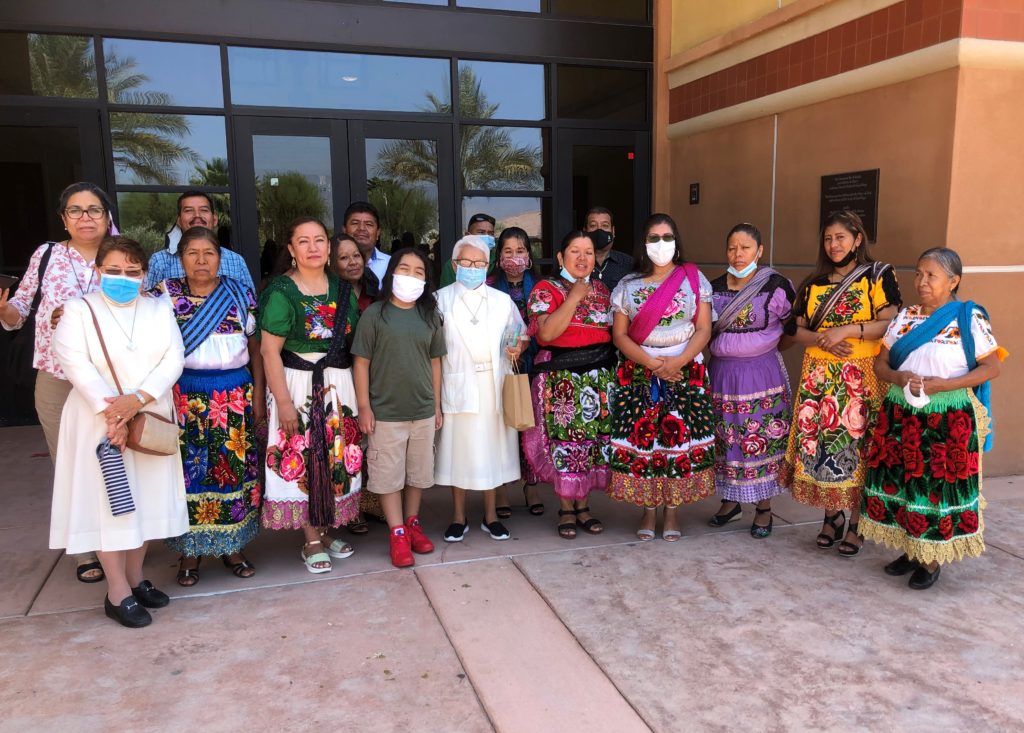
By visiting families in their homes and speaking with workers, the sisters have learned the significant hardships the Purépecha people face.
One of the largest issues is the severe pollution and toxicity of the Salton Sea. It is California’s most polluted inland lake. It has led to many residents developing asthma, skin conditions and even cancer.
They are working hard to make sure that Purépecha people know that “they have dignity, they are people and they have a voice,” Sister María Teresa said. “As sons and daughters of God they have the same rights as any person.”
Together, the sisters and the Purépecha people are advocating for improved conditions and infrastructure in their neighborhoods, such as streetlights and a park for the children.
“In a sense, through us, they feel that the Church does not leave them alone or abandoned,” Sister María Teresa said.
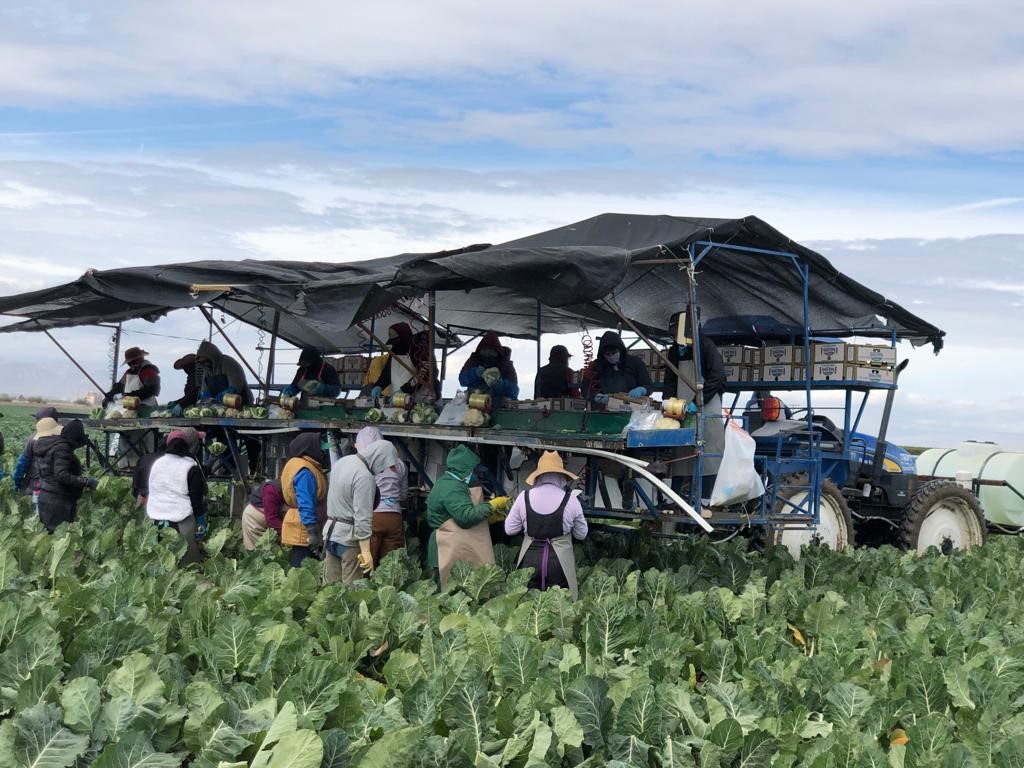
Cleaning up after the Coachella Festival
The Purépecha people work hard in both the agricultural fields and as cleaners after the Coachella music festival.
“We were surprised when they told us that they hired them from 1 in the morning until 5. It is mostly the Purépechas who are hired for very little money to go and clean up everything they leave at the festival, which is a huge area,” Sister María Teresa said. Many will rest for a few hours and then return to work in the fields.
Cleaning up after the festival poses its own dangers, as well. Oftentimes, they find used needles and drugs.
Many Purépecha will also clean out the rented homes where festival attendees stay, as well. She said the houses are often left in poor condition.
When they find wallets or phones, Sister María Teresa said, they return them as they were found. “They are serious about their work and their honesty,” she said.
New church is a “miracle”
Faith is a guiding force that helps the Purépecha people achieve their dreams. This is the case of a young woman, Elizabeth Esteban, who was given a full-ride scholarship to Harvard. When she first arrived at the prestigious school, she struggled with adjusting to a new, completely alien environment. “Praying gave me peace and motivation to keep going and pursue my goals,” she wrote in a letter to the sisters.
“She feels very proud of what she can be and says that she really wants to be an example for more young people, of her Purépecha culture,” said Sister María Teresa.
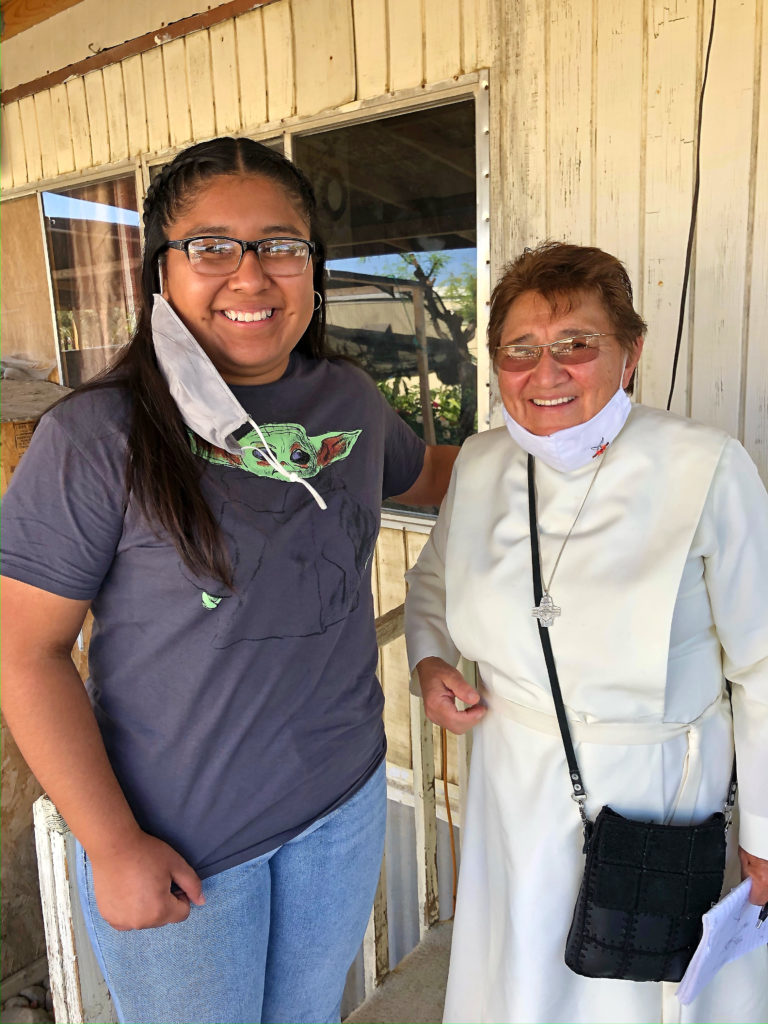
The Purépecha community in North Shore on the southern end of Coachella Valley have been working for years to have their own church.
“Faith is transforming people’s lives now. I have discovered in recent years it has been the most positive experience,” Sister Felicitas Almanza said. “Because little by little the community is integrating into the parish, and they can more freely express their culture, their faith, their different traditions, their celebrations.”
The faith community has been gathering in a parking lot, enduring the extreme heat in the summer and cold in the winter, to celebrate Mass. They want a permanent home where they can worship, host community events and pass on their faith and culture to their children.
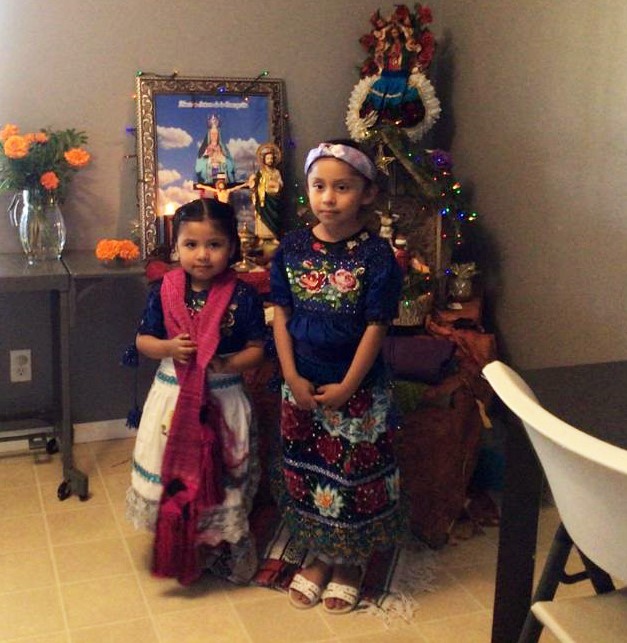
Catholic Extension Society, in partnership with St. Paul of the Cross in Park Ridge, IL, is supporting this dream. Soon, the Purépecha will have a church, San Juan Diego, to call their own.
“With our thanks, I understand that Catholic Extension Society has been part of this miracle. It is a blessing, a blessing from God.” Sister María Teresa said.
Update: Catholic Extension Society helped the Purépecha people achieve their dream of having their own church! Please support our mission to help more faith communities like this!


